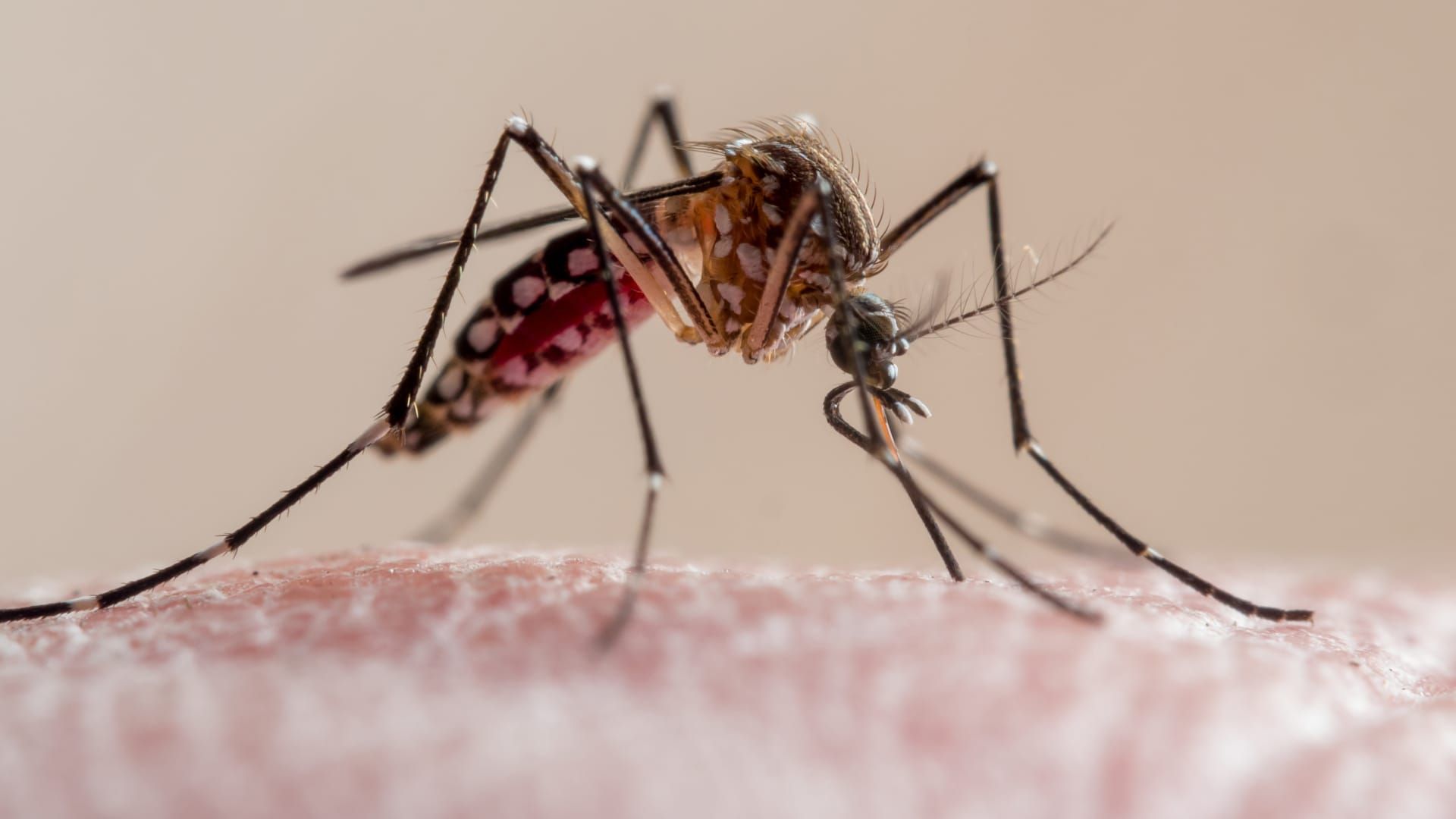Close-up of a yellow fever mosquito biting human skin, it is a culicidae vector of malaria, yellow fever, chikungunya, dengue and the zika virus in Brazil, locally known as dengue mosquito.
João Paulo Burini | Moment | fake images
The Centers for Disease Control and Prevention issued a health advisory Tuesday alerting authorities, health care providers and the public about the increased risk of dengue infections in the United States.
The alert comes as an unexpectedly higher number of dengue cases have been reported across the country, according to the CDC.
A total of 2,241 cases have been reported in the US so far this year, including 1,498 cases in the US territory of Puerto Rico, where a public health emergency was declared in March after cases surpassed all-time highs. .
The CDC reported 3,036 cases of dengue last year in the United States and its territories.
This year, the incidence of dengue worldwide has been the highest on record, especially in Latin American countries, where more than 9.7 million cases of dengue have been reported. That's double the number in all of 2023 (4.6 million cases), according to the CDC.
Dengue infections have skyrocketed as many nations have reported rising temperatures, creating ideal conditions for mosquitoes that transmit dengue to hatch en masse and carry greater amounts of the virus.
The most common symptom among those who contract the mosquito-borne disease is fever. Other symptoms include severe headaches, nausea, vomiting, rash, and body pain.
Symptoms can be mild or severe. Most dengue patients recover within a week, but in severe cases the disease can be life-threatening and require hospitalization, as it can cause shock, internal bleeding and even death.
Those who have had dengue in the past are more likely to develop severe symptoms. A person can get sick from dengue up to four times in their life, once for each type of virus that can cause the disease, according to the CDC.
The latest CDC alert warns healthcare providers to be more suspicious of dengue among people with fever, especially if they have recently been to areas with frequent dengue transmission. They are advised to promptly report any case of dengue to public health authorities and promote mosquito bite prevention measures.
The CDC said it is also implementing other measures, such as improving and expanding laboratory testing to more effectively diagnose cases, as well as educating the public about the disease and how to prevent it.
Some helpful prevention methods include staying in air-conditioned places when possible, using insect repellent, and wearing long sleeves and pants to avoid mosquito bites.












